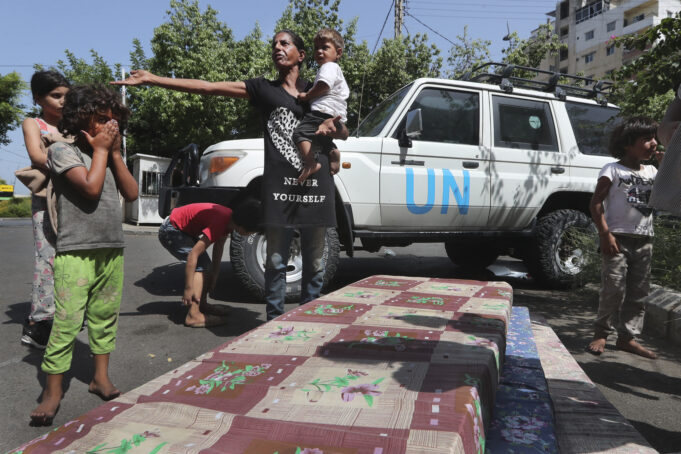JERUSALEM—Violence from Israeli settlers has displaced over 1,100 Palestinians in the occupied West Bank since 2022, according to a UN report released in September, with officials describing the exodus as unparalleled in recent years.
The report documented about three settler-related incidents each day in the West Bank—the highest daily average since the UN began documenting the trend in 2006. The violence has completely emptied out five Palestinian communities. Six more have seen half their inhabitants leave, and seven have seen a quarter flee, the report said.
As Israeli settlements expand under the far-right government of Benjamin Netanyahu, Palestinians say the violence from radical Israeli settlers has reached a fever pitch.
“The UN has recorded unprecedented levels of settler violence against Palestinians this year,” said Lynn Hastings, humanitarian coordinator for the occupied Palestinian territory. “The humanitarian community is responding to their immediate needs, but there would be no need for humanitarian assistance if their fundamental rights were upheld.”
Those who have left their homes say that attacks on their grazing lands and violence from settlement outposts—many of which are recently established on hilltops ringing rural Palestinian villages—prompted them to pull up stakes permanently.
Experts say the trend is transforming the map of the West Bank and further undermining the prospects for an independent Palestinian state. The Palestinians seek the West Bank, east Jerusalem and Gaza Strip—areas captured by Israel in the 1967 Mideast war—for their future state.
The affected villages are mostly reliant on herding and agriculture for their livelihoods. Nearly all of the communities reported having to sell part of their livestock and 70 percent have had to borrow money to pay for artificial feed after settler incursions cut off access to their grazing lands, the report says.
Over a third of the residents have reported changing their livelihoods, some giving up shepherding altogether.
The Palestinian communities that saw the greatest population loss were in areas with the highest number of settlement outposts, according to the September 21 report.
COGAT, the Israeli defense body responsible for Palestinian civilian affairs, did not respond to a request for comment.
Settlement expansion has been promoted by successive Israeli governments over nearly six decades, but Netanyahu’s far-right government has made it a top priority. Settler firebrand and powerful Finance Minister Bezalel Smotrich now oversees settlement policy and has vowed to step up construction and legalize outposts built without authorization.
The international community overwhelmingly views settlements as illegal and a major obstacle to peace. President Joe Biden met with Netanyahu on Sept. 20 on the sidelines of the UN General Assembly, raising concerns about the Israeli government’s treatment of the Palestinians.
In the pair’s first meeting since Netanyahu took office late last year, Biden urged Netanyahu to take steps to improve conditions in the West Bank at a time of heightened violence in the occupied territory. A senior U.S. official, speaking on condition of anonymity to discuss the private talks, confirmed that Biden had raised his concerns about “settler terrorist violence” during the meeting.
Palestinians who have been displaced report that Israeli authorities, charged with administering the territory, rarely respond to instances of settler violence. According to UN data, nearly all the communities where displacement occurred said they had filed complaints with authorities, but only six percent said that Israeli authorities had followed up on the complaint.
The rise in settler violence comes at a time of heavy Israeli-Palestinian fighting in the area.
Some 190 Palestinians have been killed by Israeli gunfire this year. Nearly half were affiliated with militant groups, but stone-throwing youths protesting military incursions and people not involved in the confrontations have also been killed. More than 30 people have been killed in Palestinian attacks on Israelis. (AP)













